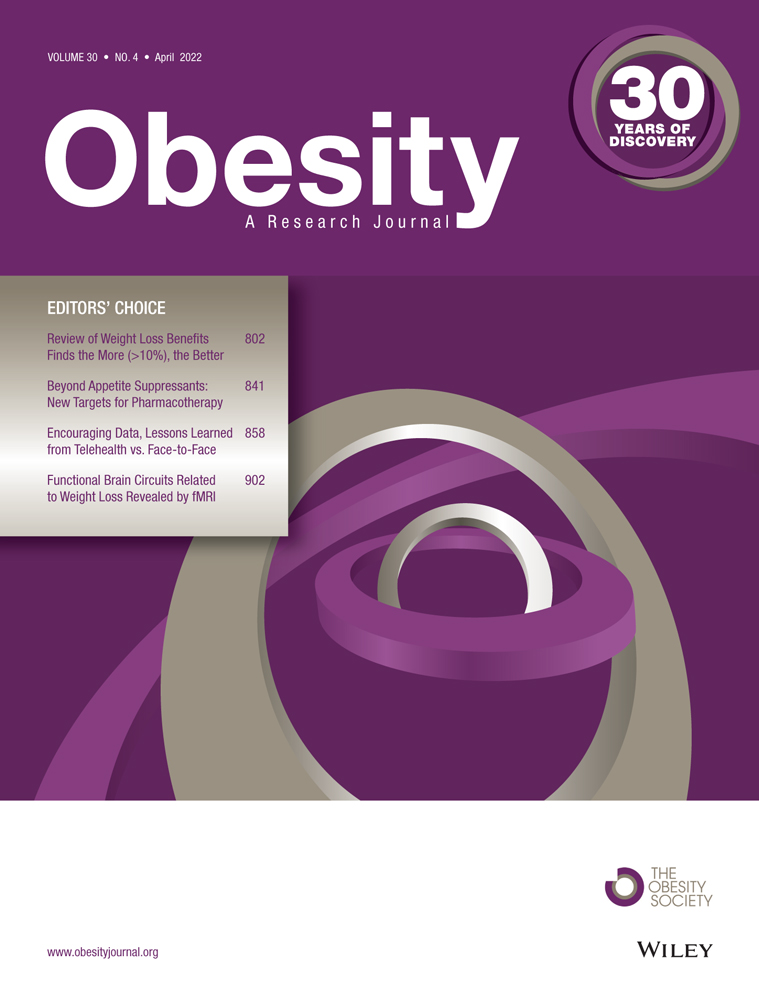Impact of transition from face-to-face to telehealth on behavioral obesity treatment during the COVID-19 pandemic
Funding information
This study was funded by the NIH, National Institute of Diabetes and Digestive and Kidney Diseases, under award R01DK119244.
Abstract
Objective
This study evaluated whether the transition of a face-to-face behavioral intervention to videoconferencing-based telehealth delivery during the COVID-19 pandemic resulted in significantly smaller weight losses than those typically observed in gold-standard, face-to-face programs.
Methods
Participants were 160 adults with obesity (mean [SD] age = 49.2 [11.9] years, BMI = 36.1 [4.2] kg/m2) enrolled in two cohorts of a 16-week comprehensive weight-management program. Cohort 1 began in person and transitioned to telehealth (Zoom) delivery during week 11 of the intervention because of COVID-19; Cohort 2 was conducted completely remotely. A noninferiority approach (using a clinically relevant noninferiority margin of 2.5%) was used to assess whether the weight losses observed were inferior to the 8% losses from baseline typically produced by gold-standard, face-to-face lifestyle interventions.
Results
From baseline to postintervention, participants lost an average of 7.4 [4.9] kg, representing a reduction of 7.2% [4.6%]. This magnitude of weight change was significantly greater than 5.5% (t[159] = 4.7, p < 0.001), and, thus, was within the proposed noninferiority margin.
Conclusions
These findings demonstrate that the results of behavioral weight-management interventions are robust, whether delivered in person or remotely, and that individuals can achieve clinically meaningful benefits from behavioral treatment even during a global pandemic. Pragmatic “lessons learned,” including modified trial recruitment techniques, are discussed.
CONFLICT OF INTEREST
The authors declared no conflict of interest.





